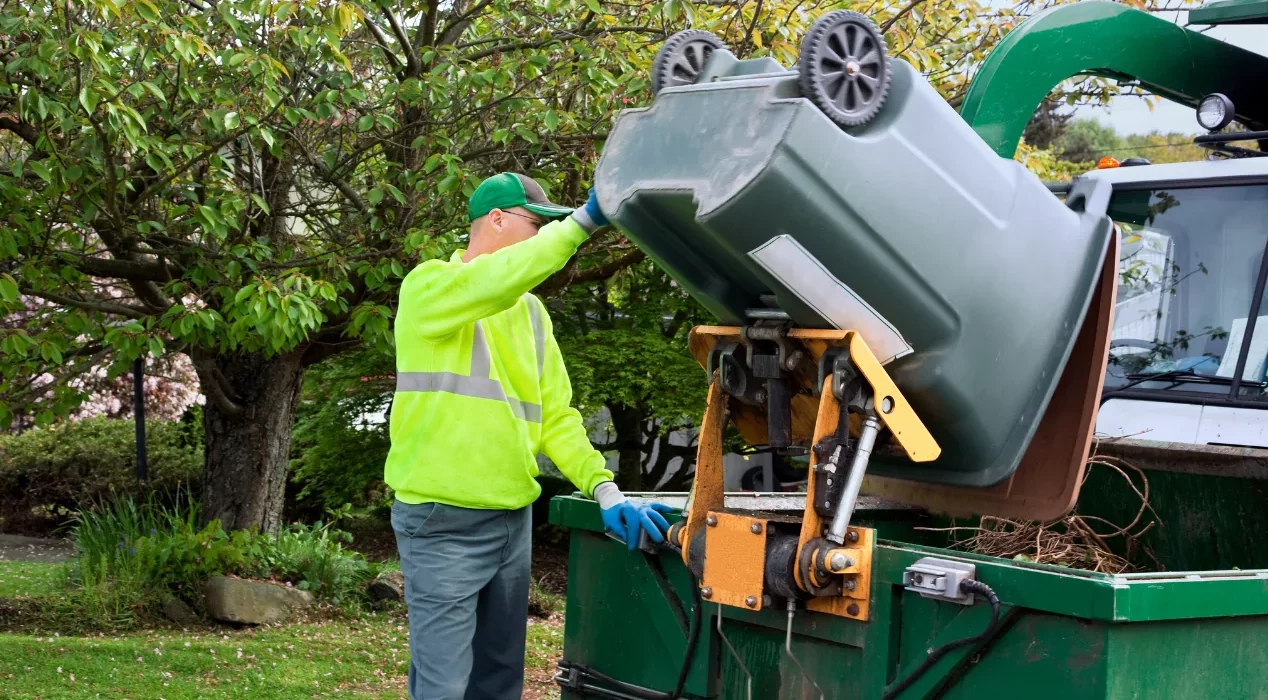In a remarkable step towards environmental sustainability, Cornwall has embarked on the staged introduction of a groundbreaking household rubbish and recycling system, setting the stage for a paradigm shift in waste management practices. This transformative change is not merely a local initiative but a beacon of inspiration for communities worldwide, emphasizing the critical role individuals play in fostering a greener, more sustainable future. In this comprehensive exploration, we will delve into the intricate details of Cornwall’s innovative waste collection service, unraveling the multifaceted layers of change, implications, and the collective responsibility it places on residents.
The Dawn of Change
Cornwall Council’s unwavering commitment to environmental stewardship takes center stage as the new waste collection system unfolds. Mid-Cornwall, including vibrant communities such as Newquay and St Austell, serves as the vanguard for this ambitious program, marking the beginning of a sustainable revolution. The primary objective is clear – to reduce the volume of non-recyclable rubbish, ushering in an era where waste is viewed not as a burden but as a resource waiting to be reclaimed.
Embracing Weekly Food Waste Collection
A notable facet of Cornwall’s waste management overhaul is the introduction of a weekly food waste collection system. This strategic move reflects a forward-thinking approach that acknowledges the critical role of addressing food waste in the broader context of sustainability. Residents have received a suite of new bins, including dedicated indoor and outdoor caddies for food waste, along with a 180-litre wheelie bin or sack designated for general rubbish.
The significance of segregating food waste lies in its potential for conversion into valuable resources such as compost or renewable energy. By actively participating in this initiative, residents contribute not only to a reduction in landfill-bound waste but also to the creation of a closed-loop system where organic matter is repurposed to benefit the environment.
Fortnightly Rubbish Collection – A Paradigm Shift
In a departure from the conventional weekly rubbish collection schedule, Cornwall’s new system adopts a fortnightly rhythm. This change challenges households to reevaluate their waste generation habits and adopt a more mindful approach. While some might view this adjustment as a departure from the norm, it signifies a strategic effort to reduce the environmental impact associated with non-recyclable waste.
The fortnightly collection schedule encourages residents to engage in more conscious consumption, waste reduction, and recycling practices. It prompts a reevaluation of the items destined for the landfill, sparking a collective shift towards sustainable living. As the community adapts to this new rhythm, the hope is to cultivate a sense of responsibility for the environmental footprint associated with individual households.
Sustainability in Action
Cornwall Council’s bold initiative is not merely symbolic; it carries tangible and quantifiable benefits for the environment. The estimation that these changes will result in an annual reduction of 18,000 tonnes of carbon emissions showcases the potential impact of collective, concerted efforts. This reduction is a testament to the power of proactive environmental policies and the pivotal role local communities play in effecting positive change.
Councillor Carol Mould, portfolio holder for waste, emphasizes the gravity of this “big change” and underscores the collective responsibility in the face of a climate emergency. This move aligns with broader global efforts to address environmental challenges and signals Cornwall’s commitment to being at the forefront of sustainable waste management practices.
Wake-Up Call to Food Waste
Councillor Mould’s assertion that the realization of the extent of food waste will serve as a wake-up call is a poignant reminder of the importance of individual awareness and action. Food waste is a global challenge, with significant environmental, social, and economic implications. By actively participating in the new waste management system, residents not only contribute to local sustainability goals but also align with a broader global effort to address this critical issue.
The emphasis on reducing food waste extends beyond the immediate benefits of waste diversion. It fosters a culture of mindfulness around consumption, encouraging residents to plan meals efficiently, store food appropriately, and appreciate the value of the resources that go into food production. In doing so, Cornwall sets an example for communities globally, demonstrating that addressing food waste is not just an environmental imperative but a lifestyle choice with far-reaching consequences.
Roll-Out Plan and Community Engagement
The changes introduced in mid-Cornwall are a precursor to a broader rollout set to encompass the entire county by the end of 2025. This phased implementation allows for a systematic adjustment period, enabling residents to acclimate to the new waste management norms gradually. Cornwall Council recognizes the need for effective communication and community engagement during this transition.
Residents in areas where the new service has commenced are advised to check their bin days, recognizing that this adjustment might extend to a change in the entire collection schedule. The success of this initiative hinges not only on the efficiency of the new waste management system but also on the active participation and understanding of the community.
Rachael Reid, the council’s waste engagement officer, plays a crucial role in fostering community understanding and involvement. Her suggestion to find alternative uses for old bins, such as garden storage or converting them into water butts, echoes the broader ethos of sustainability. Encouraging residents to repurpose their old bins not only minimizes waste but also reinforces the concept of a circular economy where resources are continually reused and repurposed.
Conclusion
As Cornwall pioneers a new era in waste management, residents find themselves at the forefront of a collective effort towards sustainability. The staged introduction of this innovative system symbolizes a commitment to mitigating the environmental impact of household waste, recognizing that waste is not a problem to be discarded but a valuable resource awaiting transformation. Cornwall’s journey towards a greener future serves as an inspiration for communities worldwide, reinforcing the notion that individual actions, when combined, can lead to profound positive change.

